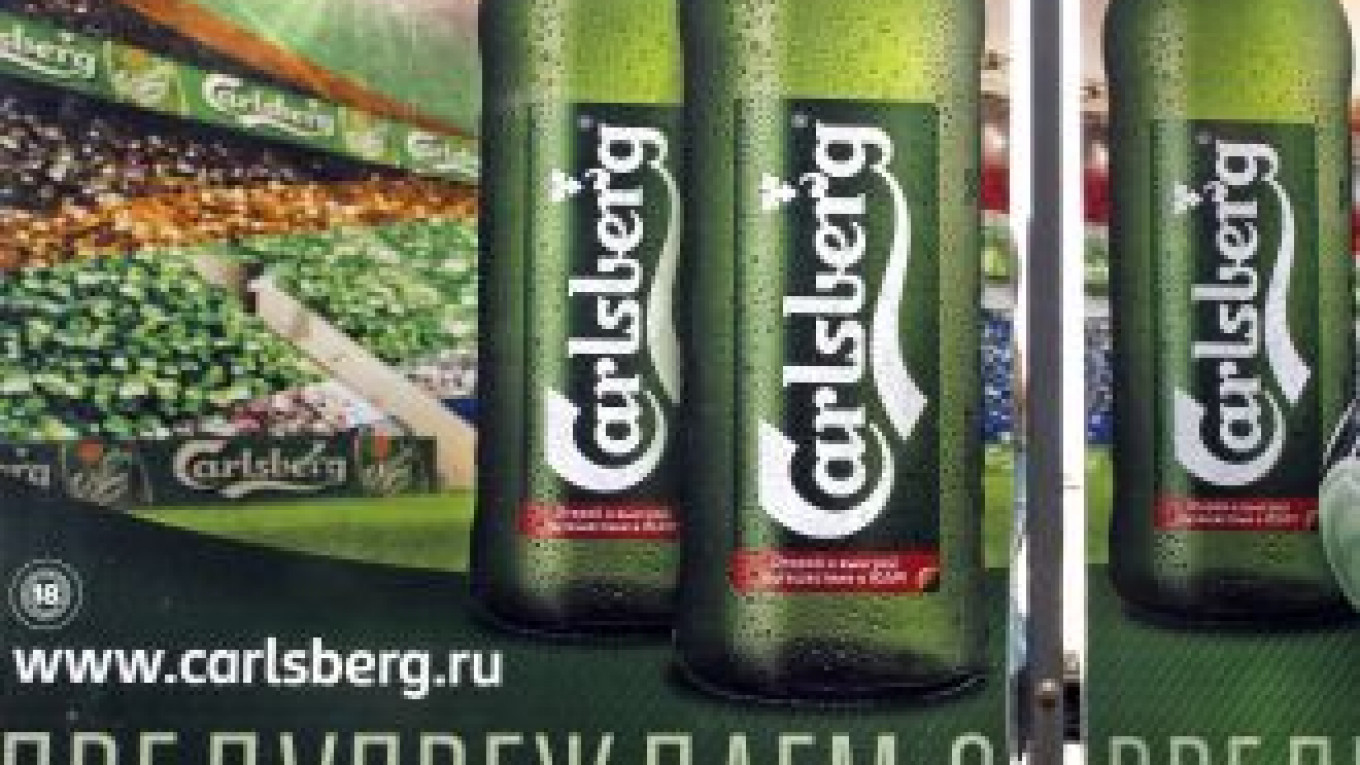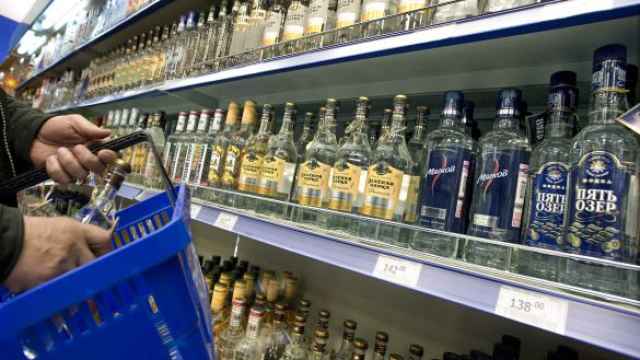The country's top sanitary doctor on Thursday called for a total ban on the advertisement of beer and other alcohol in Russia, calling the beverages "evil" and complaining about their use in television shows.
"Let's raise our voice and prohibit all advertisements of alcohol, including beer," said Gennady Onishchenko, head of the Federal Consumer Protection Service.
He added that television commercials "interrupt programs for so long that you forget what they were about" and "aggressively convince you of beer's health benefits."
"Shameless liars," he said, Interfax reported.
The outspoken consumer health official has made similar calls to curb sales of tobacco in the past, including in July 2008, when he accused U.S. cigarette companies of engaging in the "nicotine genocide of the Russian people."
Beer producers were up in arms over the latest proposal, saying it would make things only worse.
"Despite the fact that authors of such initiatives declare their concern for people's health, such bans will bring the opposite effect," said Russian Beer Union spokeswoman Yulia Khramaikova.
Restrictions introduced in 2005, while they had some impact on the business, did not decrease consumption of beer. To lower consumption, regulating retail sales and punishing those who sell to minors would be more effective, she said in an e-mailed comment.
Russian authorities have gradually increased restrictions on alcoholic beverage markets since 2005 by banning the use of people and animals in television commercials, introducing new labeling requirements, increasing the excise tax on alcohol and banning nighttime sales of spirits with more than 15 percent alcohol content in some regions.
Moscow on Wednesday extended the nighttime sales ban to the period between 10 p.m. and 10 a.m. from the previous period of 11 p.m. to 8 a.m.
Onishchenko applauded the ban extension, but said it was not sufficient. Alcohol is "evil, especially for a young, growing body," he said.
"Where is the propaganda of a healthy way of life?" he asked. "Why do [characters from TV series] drink and smoke? Because they have an agenda, because everything is for sale."
Carlsberg's Baltika brewery, one of the largest television advertisers in Russia, reduced its TV advertising budget by 32 percent to 441.7 million rubles ($14.5 million) in the first half of 2010 compared with the same period last year, according to figures released by Mindshare Russia on Monday.
The average reduction by the top 20 advertisers was less than 5 percent.
Baltika does not comment on any budget issues, spokeswoman Natalya Markova said.
Beer companies have been searching for ways to ease the effects of tightening government regulations. Baltika has recently launched new brands of water, lemonade and cider.
A spokeswoman at the Federal Consumer Protection Service said she could not elaborate on Onishchenko's proposal to ban all alcohol advertisements, but she admitted that no study had been done linking the amount of advertisement with the level of consumption.
A Message from The Moscow Times:
Dear readers,
We are facing unprecedented challenges. Russia's Prosecutor General's Office has designated The Moscow Times as an "undesirable" organization, criminalizing our work and putting our staff at risk of prosecution. This follows our earlier unjust labeling as a "foreign agent."
These actions are direct attempts to silence independent journalism in Russia. The authorities claim our work "discredits the decisions of the Russian leadership." We see things differently: we strive to provide accurate, unbiased reporting on Russia.
We, the journalists of The Moscow Times, refuse to be silenced. But to continue our work, we need your help.
Your support, no matter how small, makes a world of difference. If you can, please support us monthly starting from just $2. It's quick to set up, and every contribution makes a significant impact.
By supporting The Moscow Times, you're defending open, independent journalism in the face of repression. Thank you for standing with us.
Remind me later.






